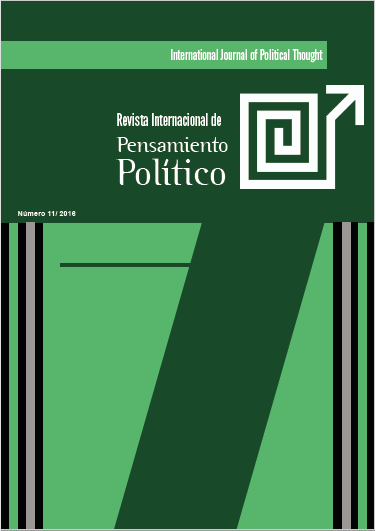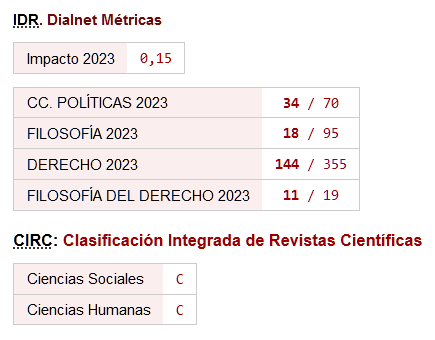BASES ÉTICAS DE LOS MODELOS CONTEMPORÁNEOS DE DEMOCRACIA: MONITORIZADA Y POSREPRESENTATIVA
DOI:
https://doi.org/10.46661/revintpensampolit.3540Palabras clave:
Democracia , Representación , Participación , Sociedad civil, ÉticaResumen
La democracia parece atravesar por un momento de redefinición de algunos de sus principios y estructuras básicas. En los últimos tiempos se ha observado el crecimiento de la desafección ciudadana hacia algunas de las estructuras representativas –partidos políticos, parlamentos y elecciones periódicas– así como una creciente demanda de mayor participación por parte de capas de la sociedad civil. Sin embargo, son escasos los planteamientos teóricos actuales que reflexionen sobre la relación entre la desafección ciudadana, la participación y las nuevas herramientas digitales. Los modelos de democracia monitorizada y la posrepresentativa son una excepción a este fenómeno y nos permiten repensar tanto el presente como el posible futuro de la democracia. Este artículo teórico pretende profundizar en ambas propuestas con el objeto de identificar sus semejanzas y diferencias en cuanto a la comprensión de la participación ciudadana. Al mismo tiempo, el interés del presente trabajo también radicará en observar la justificación ética que acompaña a dichas propuestas.Descargas
Descargas
Publicado
Cómo citar
Número
Sección
Licencia
Derechos de autor 2018 Revista Internacional de Pensamiento Político

Esta obra está bajo una licencia internacional Creative Commons Atribución-NoComercial-CompartirIgual 4.0.
Política de acceso abierto
Se permite el acceso libre y abierto de cualquier interesado a todos los contenidos de los números de la revista, sin costo alguno, pudiendo imprimir y trasladar todos los artículos, con la única condición de precisar la fuente y la autoría.
La revista: a) no cobra a las autorías costes por el procesamiento de los artículos ni por el envío de los mismos, b) mantiene el copyright para los autores sin restricciones, c) facilita a los autores conservar sus derechos de publicación sin limitaciones.
La Revista Internacional de Pensamiento Político es una obra original del Laboratorio de Ideas y Prácticas Políticas de la Universidad Pablo de Olavide. Todos los artículos incluidos en la Revista son obra original de sus respectivas autorías. Esta Revista se ofrece libremente a la comunidad científica y académica sin coste alguno y libera los contenidos de acuerdo a la licencia "Reconocimiento-NoComercial-CompartirIgual 4.0 CC BY-NC-SA" del proyecto Creative Commons dispuesta en la siguiente url: https://creativecommons.org/licenses/by-nc-sa/4.0/legalcode
Si deseas traducir o compilar alguno de los artículos aquí disponibles, por favor, ponte en contacto













